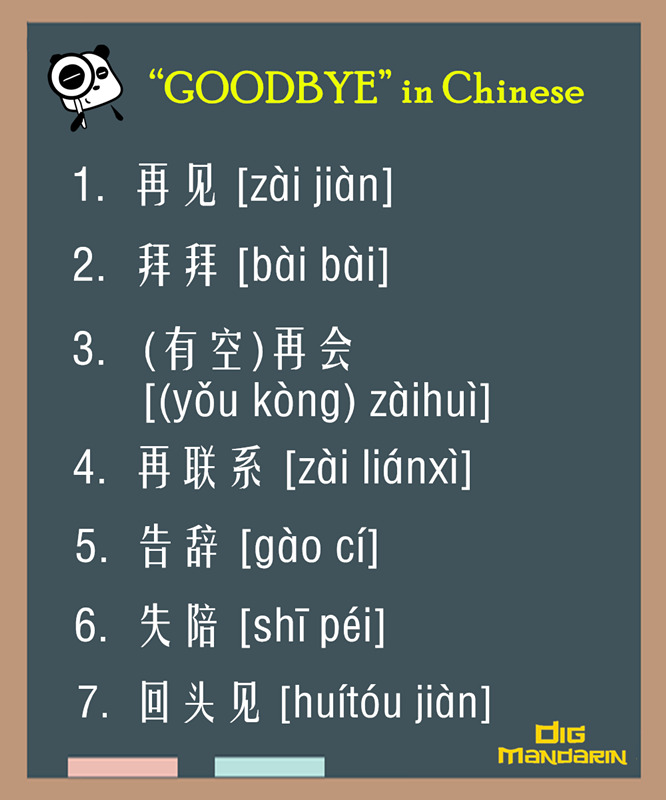Just as there are a number of ways to greet someone “Hello” in Mandarin, there are also just as many ways to say “Goodbye”. In fact, in Chinese, there are quite a number of equivalents to English’s “Bye bye”, “See you”, “Farewell”, and all other sayings that mean you are parting ways, even if just for a little while. Let’s explore some of these different ways to say goodbye in Chinese below:
1. 再见 [zài jiàn]
再见 literally means “See you again”, and is the most common way to say goodbye. Most of us learned this word in our first Chinese class, right?
2. 拜拜 [bài bài]
拜拜, a phonetic translation of English’s ‘bye bye’, this is a more casual and common way to say goodbye.
3. (有空)再会 [(yǒu kòng) zàihuì]
会means “meet”, so 再会means “Until we meet again” (which is quite similar to 再见)
4. 再联系 [zài liánxì]
再, as we’ve said, means “again”, and 联系means “contact”. So, 再联系means “Let’s stay in touch” or “Let`s make contact with each other again”.
5. 告辞 [gào cí]
It means “I’m leaving”, and is a formal way to announce one’s departure.
6. 失陪 [shī péi]
This is very formal, and can be translated to mean “Excuse me, but I must be leaving now.” We also say “失陪一下”which means “Excuse me, but I must leave you for a while.”
7. (_______ )见 [jiàn]
All the phrases we mentioned above are vague about the exact time of departure. So, there is a very practical pattern about how to say “see you” at an exact time. As we have mentioned, 见 means “see”. So if we add a relatively exact time before 见, it means “see you” at that certain point in time. For example:
- 回头见 [huítóu jiàn] ”See you later.”
- 一会儿见 [yī huǐr jiàn ]”See you in a while.”
- 明天见 [míngtiān jiàn] ”See you tomorrow.”
- 下午见 [xiàwǔ jiàn] ”See you this afternoon.”
- 周一见 [zhōuyī jiàn] ”See you Monday.”
- 下周见 [Xià zhōu jiàn] ”See you next week.”



hey! this post was helpful, thanks a lot